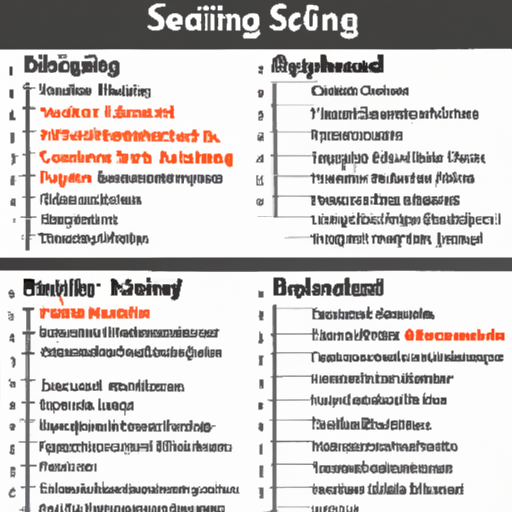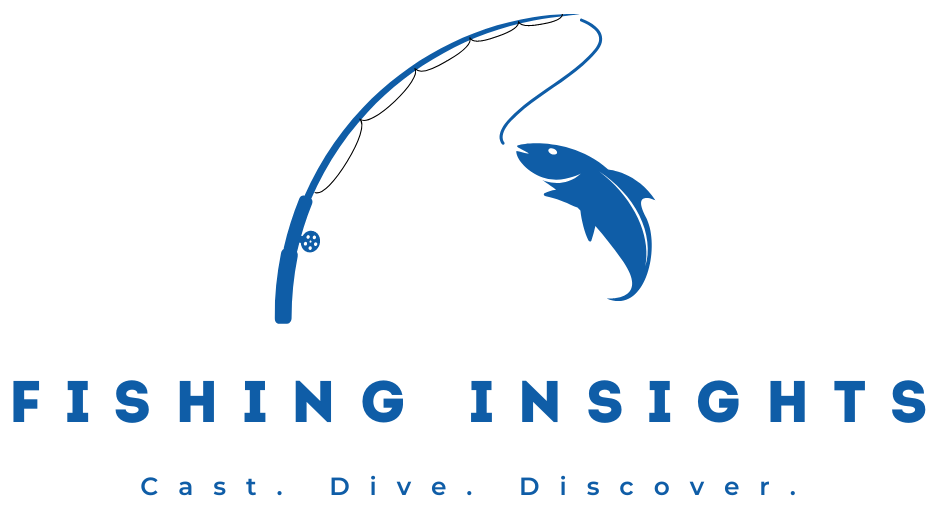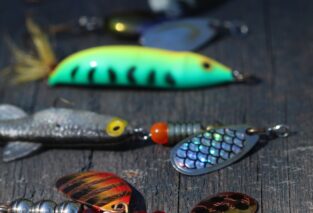Are you a beginner fisherman facing challenges in your fishing adventures? Look no further! “Dealing With Fishing Challenges: Solutions For Beginners” is the ultimate guide designed to help you overcome common obstacles and become a successful angler. Whether you struggle with casting techniques, bait selection, or understanding fish behavior, this comprehensive resource offers practical solutions and expert tips to improve your fishing skills. With easy-to-follow instructions and insightful advice, this guide is your key to conquering the challenges and reeling in a great catch every time.

Choosing the Right Fishing Gear
When it comes to fishing, choosing the right gear is essential for success. One crucial component to consider is the fishing reel. There are several types of fishing reels available, each with its own advantages and purposes. The most common types include spinning reels, baitcasting reels, and spincasting reels.
Spinning reels are often the go-to choice for beginners. They are easy to use, versatile, and suitable for various fishing techniques. Baitcasting reels, on the other hand, offer greater control and precision but require more skill to operate effectively. Lastly, spincasting reels are simple and user-friendly, making them perfect for beginners or children.
In addition to choosing the right reel, selecting the appropriate fishing rod is equally important. Fishing rods come in different lengths, materials, and actions. Shorter rods are ideal for casting in tight spaces, while longer rods offer better casting distance. Fiberglass rods are known for their durability, while graphite rods are lighter and more sensitive. The rod’s action refers to how flexible it is and can vary from fast to slow. Beginners often find moderate action rods to be the most forgiving and versatile.
To complete your fishing gear, it is crucial to choose the appropriate fishing line. Fishing lines can be made of various materials such as monofilament, fluorocarbon, or braided lines. Monofilament lines are affordable and suitable for most fishing situations, while fluorocarbon lines are invisible underwater, making them ideal for clear water conditions. Braided lines offer high strength and sensitivity, perfect for fishing in heavy cover or deep water. Consider the type of fishing you will be doing and the specific conditions in order to choose the right fishing line for your needs.
Learning Basic Fishing Techniques
Once you have the right gear, it’s time to learn some basic fishing techniques. Casting and retrieving is one of the fundamental skills every angler needs to master. It involves casting the line out into the water and then reeling it back in, imitating the movement of prey to attract fish. Practice your casting technique to achieve accuracy and distance.
Another important technique to learn is setting the hook. When a fish bites, it is crucial to react quickly and set the hook firmly. This ensures that the hook is securely embedded in the fish’s mouth, increasing the chances of a successful catch. The timing and technique for setting the hook vary depending on the type of fish and fishing technique you are using.
Playing and landing fish is the final step in basic fishing techniques. Once you have successfully hooked a fish, you need to play it carefully to tire it out before landing it. This involves maintaining a steady pressure on the line while allowing the fish to run and fight. Once the fish is tired, slowly reel it in and use a net or your hands to bring it out of the water. Be mindful of the fish’s size and weight to avoid damaging the fish or your equipment.
Understanding the Fishing Environment
To increase your chances of a successful fishing trip, it is essential to understand the fishing environment you are in. Identifying the best fishing spots is crucial for finding fish. Look for areas with underwater structures such as rocks, weeds, or submerged trees as these provide shelter and food for fish. Additionally, pay attention to water temperature and depth, as different fish species have specific preferences.
Learning about fish behavior is also important. Fish have habits and patterns that can be predictable, especially in relation to feeding times and locations. Understanding fish behavior can help you determine the best times and areas to fish. Additionally, pay attention to the type of food sources available in the water, as this will influence the fish’s feeding habits.
Lastly, understanding weather patterns is crucial for a successful fishing trip. Fish are affected by changes in weather, and knowing how they respond can give you an advantage. For example, fish tend to be more active and feed more aggressively before a storm, while they may be less active during hot, sunny days. Keep track of weather forecasts and plan your fishing trips accordingly.
Mastering Different Fishing Techniques
As you gain more experience in fishing, it is beneficial to explore and master different fishing techniques. Bait fishing is one of the most common and versatile techniques. It involves using live or artificial bait to attract fish. Different types of bait are suitable for different fish species, so it’s important to do your research and choose the right bait for your target fish.
Fly fishing is a more specialized technique that requires casting a weighted line with an artificial fly as bait. It is commonly associated with freshwater fishing and is known for its precision and finesse. Fly fishing can be challenging to master, but it offers a unique and rewarding fishing experience.
Trolling is another popular technique that involves dragging bait or lures behind a moving boat. It is commonly used in open water or large bodies of water. Trolling allows you to cover a large area and can be effective for targeting species such as trout, salmon, or muskies. Use specialized trolling gear and adjust your speed and depth to entice fish to bite.
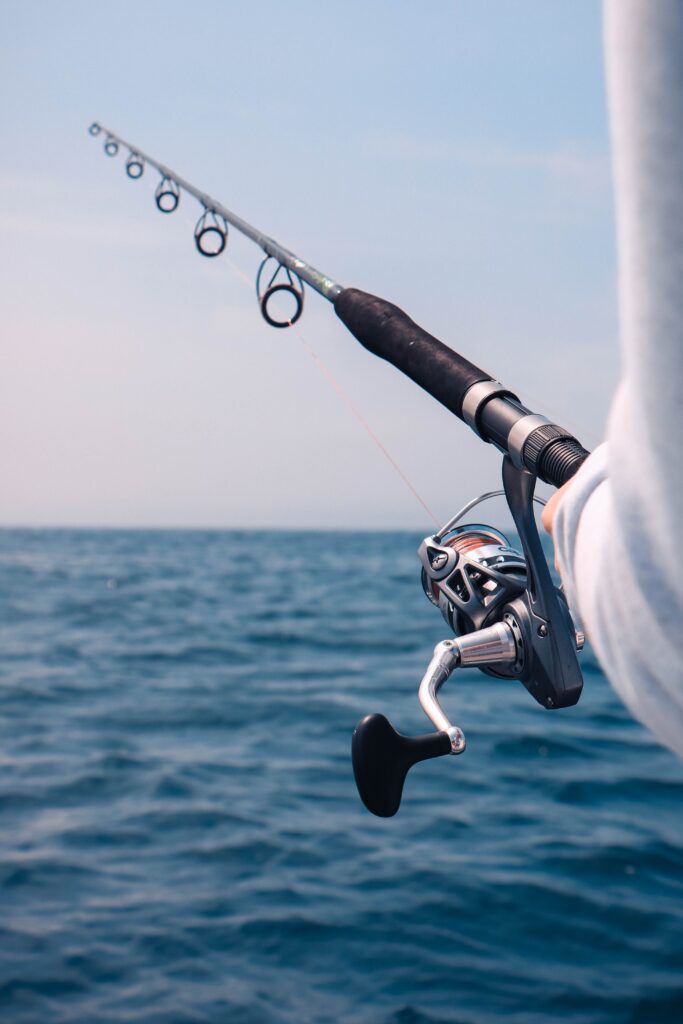
Dealing with Common Fishing Challenges
Fishing is not without its challenges, and beginners often face common issues. Snags and tangles can occur when fishing in areas with underwater obstacles or vegetation. To minimize the chance of snags, choose fishing spots carefully and avoid casting near potential hazards. If you do get snagged, try pulling the line gently from different angles to release it. Tangles can be prevented by properly organizing your fishing line and checking for any twists or knots before casting.
One of the most disappointing challenges in fishing is losing fish once they are hooked. This can happen due to various reasons, such as weak equipment, improper hook setting, or the fish simply breaking the line. To increase your chances of landing fish, ensure your equipment is strong and properly maintained. Practice setting the hook efficiently and apply steady pressure when reeling in a hooked fish. Additionally, consider using a landing net to assist in bringing the fish safely to shore.
Fish hitting and running can also pose a challenge for anglers. Some fish species are known for their swift movements and powerful runs once they are hooked. This can make it difficult to maintain control over the fish and prevent it from breaking the line. To counteract this, loosen the drag on your reel to allow the fish some leeway while still maintaining tension. This will prevent the line from snapping under the strain of a strong fish.
Adapting to Different Fishing Conditions
Fishing conditions can vary greatly depending on the location and time of year. Being able to adapt and adjust your fishing techniques accordingly is crucial for success. Fishing in shallow waters requires a different approach than fishing in deep waters. In shallow waters, fish tend to be more easily spooked, so it’s important to be stealthy and approach quietly. Use lighter tackle and smaller lures or baits to entice fish in shallower areas.
Conversely, fishing in deep waters requires heavier tackle to handle the increased weight and pressure. Invest in appropriate sinking lines or weights to reach the desired depths. Keep in mind that fish in deep waters may be less active, so it may take more patience and persistence to get them to bite.
Fishing in fast-moving currents can also present a challenge. The current can affect the way your bait or lure behaves and may require adjustments to your fishing technique. Consider using heavier lures or sinkers to keep your line and bait submerged in fast currents. It’s also important to position yourself correctly to take advantage of the current’s flow and maximize your chances of enticing fish.
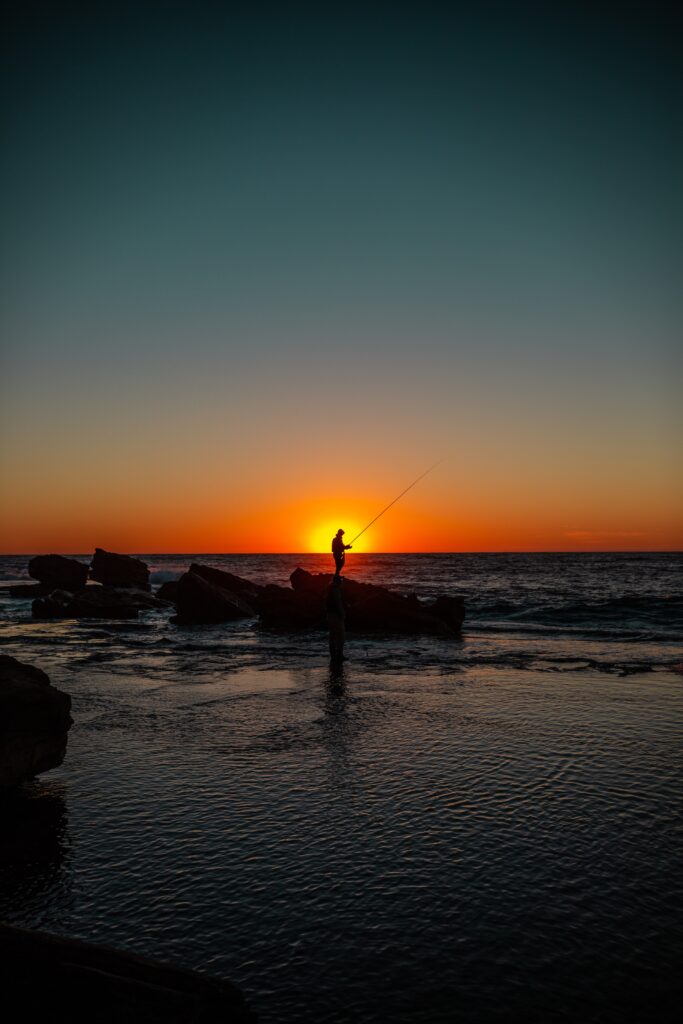
Using the Right Fishing Knots
Having the ability to tie strong and reliable knots is crucial in fishing. Different knots serve different purposes and knowing when and how to use them is important for the overall strength and effectiveness of your fishing setup. Understanding the purpose of different knots is the first step. Some knots are designed for connecting two lines, while others are used for attaching a line to a hook or lure.
Learning to tie essential knots is essential for any angler. The improved clinch knot is one of the most commonly used knots for securing the line to a hook or lure. The Palomar knot is another popular choice for its simplicity and strength. Other knots such as the blood knot, the uni knot, and the loop knot also have their uses in different fishing scenarios.
To ensure the strength and reliability of your knots, practice tying them regularly. Check your knots for any signs of weakness or slippage before casting. It’s better to spend a few extra minutes retying a knot than risking losing a fish due to a faulty knot.
Understanding Fishing Regulations and Ethics
As an angler, it is crucial to understand and adhere to fishing regulations and ethical practices. Obtaining fishing licenses is a legal requirement in many jurisdictions. The rules and regulations can vary depending on the location, species, and time of year, so it’s important to familiarize yourself with the specific regulations in your area. Fishing without a license can result in hefty fines or legal consequences.
Another important aspect is adhering to catch limits. This means respecting the size and quantity restrictions placed on certain fish species. Catch limits are in place to ensure sustainable fishing practices and preserve fish populations. Always measure and release undersized fish and be mindful of your catch limit to contribute to the conservation efforts.
Practicing catch and release is an ethical approach to fishing. If you are not intending to keep the fish for consumption, handle it with care and release it back into the water as quickly and gently as possible. Avoid overhandling the fish and minimize any harm or stress caused during the release process. This ensures the fish has the best chance of survival and future reproduction.

Developing Patience and Persistence
Fishing requires patience, and it is often said that it is a virtue in this activity. Patience is essential because fishing is not always about instant success. There will be moments of waiting and anticipation, but it is these moments that can make the eventual catch all the more rewarding. Embrace the quiet and peaceful moments spent by the water, and remember that each fishing trip is an opportunity to learn and grow as an angler.
Staying persistent despite challenges is another important aspect of fishing. Not every fishing trip will result in a successful catch, and setbacks are common. It’s important to stay motivated and focused even when things don’t go as planned. Keep trying different techniques, adjusting your strategies, and learning from each experience. Persistence and a positive mindset will eventually lead to success.
Getting Expert Advice and Guidance
To enhance your fishing skills and knowledge, seeking expert advice and guidance can be tremendously helpful. Taking beginner fishing classes is an excellent way to learn the basics from experienced instructors. These classes often cover various fishing techniques, gear selection, and safety practices. They provide a structured learning environment where you can ask questions and receive hands-on guidance.
Joining fishing communities or clubs is another way to connect with experienced anglers and learn from their expertise. Fishing communities often organize group outings, where you can observe and interact with more experienced fishermen. These groups are also a great source of information and can provide insights into local fishing spots and conditions.
Lastly, don’t hesitate to seek guidance from experienced anglers. If you have friends or family members who are avid fishermen, ask them for tips and advice. Most anglers are more than happy to share their knowledge and help beginners improve their skills. Learning from someone with firsthand experience can provide valuable insights and shortcuts to becoming a more successful angler.
In conclusion, fishing is a rewarding hobby that requires a combination of knowledge, skill, and patience. By choosing the right fishing gear, learning basic techniques, understanding the fishing environment, mastering different techniques, and adapting to various conditions, you can become a proficient angler. Additionally, developing a strong understanding of fishing regulations, practicing ethical fishing practices, and seeking expert advice will further enhance your fishing experience. Remember, fishing is not just about catching fish; it’s about enjoying the process, immersing yourself in nature, and continually growing as an angler.
